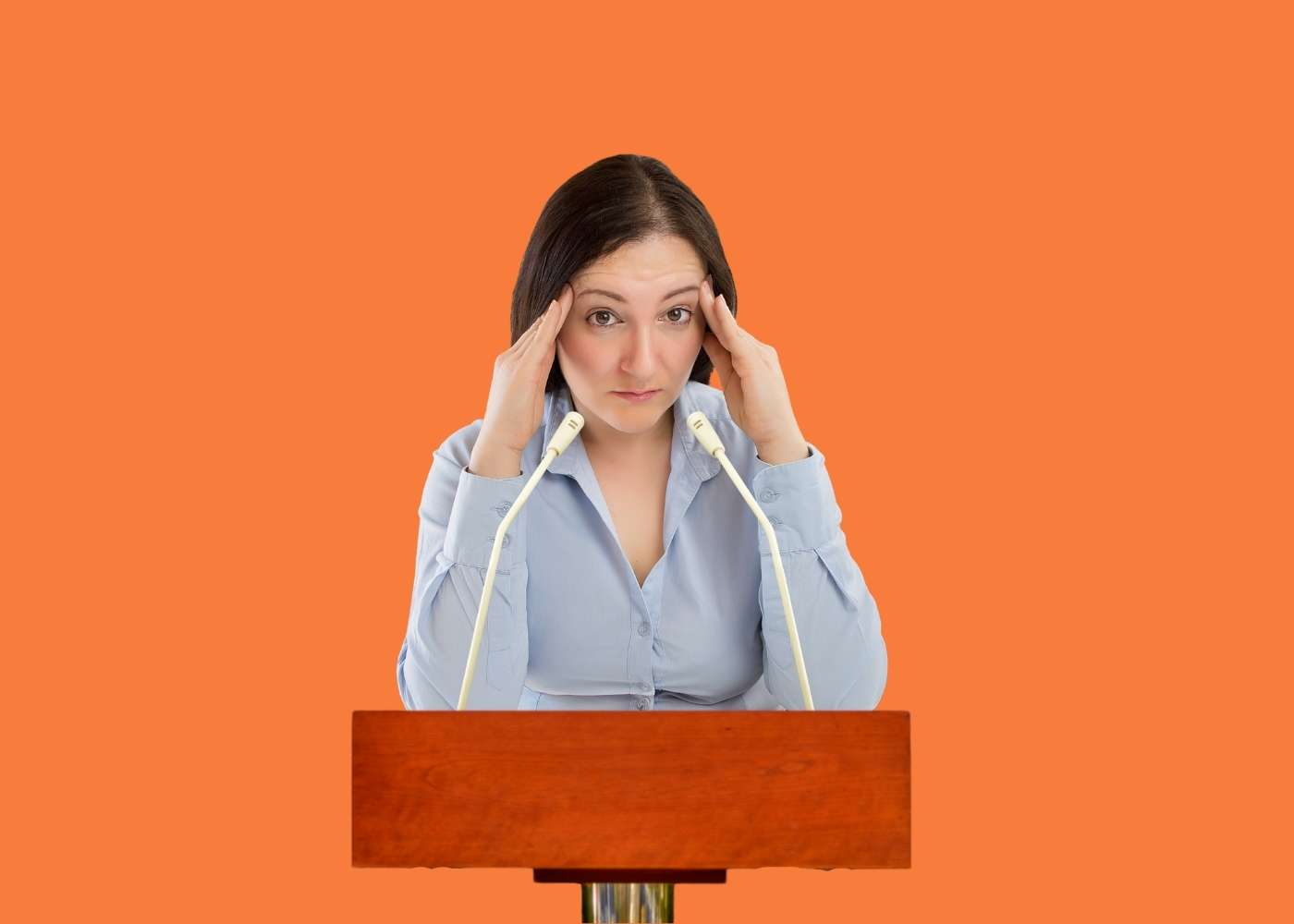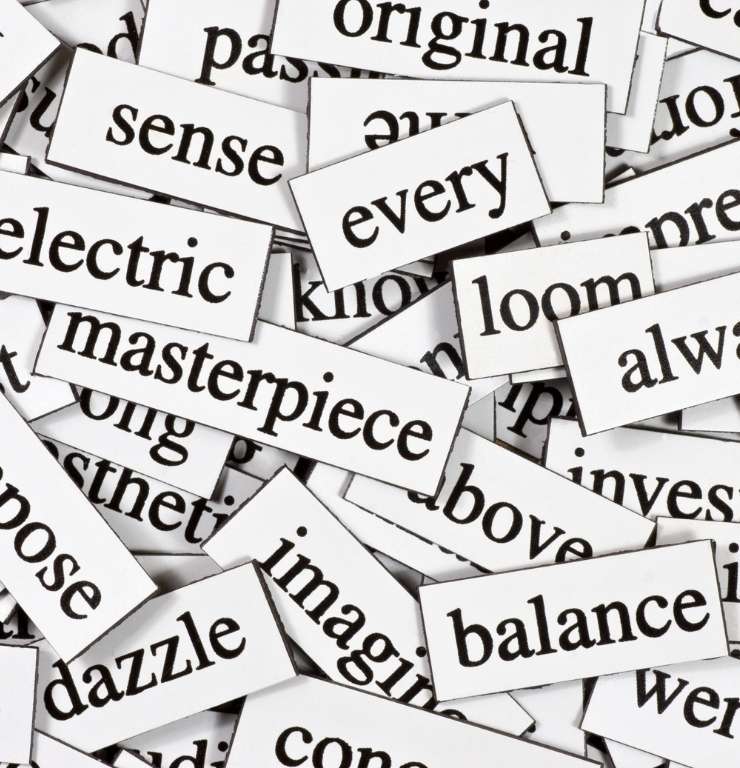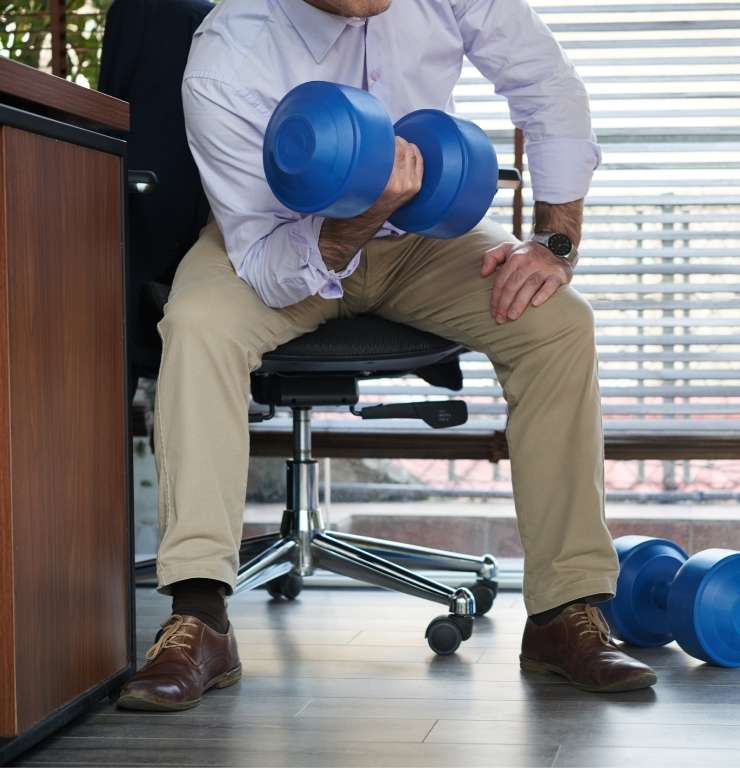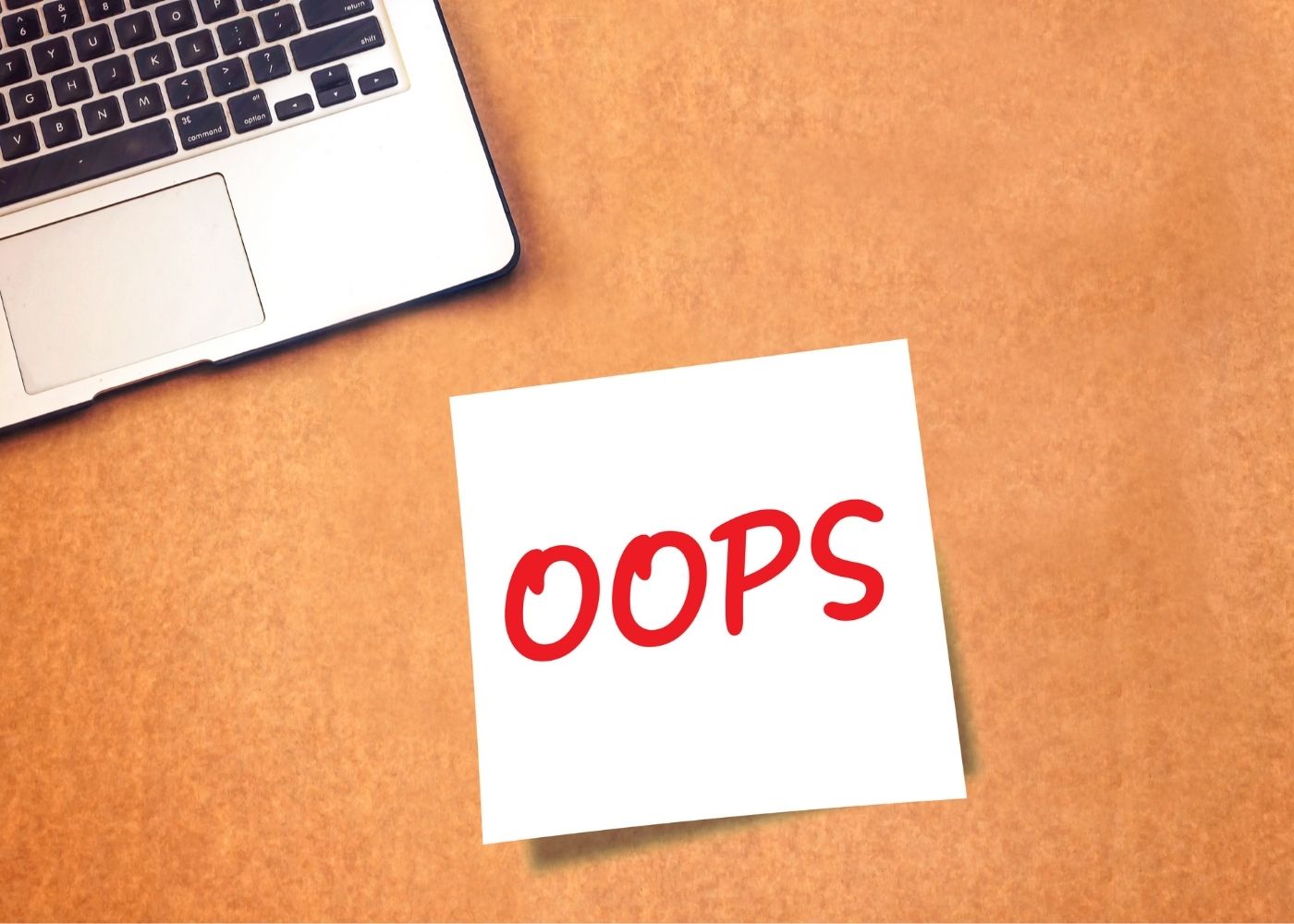
How what you wear speaks volumes
M
any years ago, I worked with a financial analyst in the energy sector. She was to deliver a presentation to four separate audiences in LA, and the topic was “Why I Never Bought Enron.” The people she would be addressing were shareholders and board members.
We had a slam-dunk report for them but she was uneasy. These were all Ivy-league types and she was the daughter of a detective, from Queens. She felt the difference, keenly.
So I suggested we style her as one of them: pearls, sweater set, black headband etc. I told her it would help her feel more at ease and it did the trick.
She was relaxed, thoroughly prepared and able to stay in the moment. She got spontaneous applause at 3 of the 4 meetings.
What you wear when you’re presenting matters quite a bit. Before you can open your mouth, your appearance is sending out messages. Make sure that you know what those messages are saying.

You don’t get rid of fright, You manage it!
Recently my colleague Tina Larsson asked how to get rid of stage fright. My answer is you don’t get rid of it, but you learn how to manage it. Here are some tips for wrangling that energy to your benefit:
- Be prepared. That’s going to do the most for your confidence. Knowing how to prepare is something I find most people are fuzzy on, so I’ll delve into that another day.
- Limit your caffeine and sugar intake on the day you present, so you don’t get an adrenaline spike mixing with a sugar spike.
- Visualize yourself delivering your message: strong, confident & having fun.
- Have a mantra at hand (in mind), to inspire you to a better performance.
- Drink plenty of water, which is the speaker’s drink of choice. Not carbonated or cold water though, cold chills your voice cords which can send your pitch up.

Managing Stage Fright
Plenty of people, myself included, have experienced fear before getting in front of an audience.
“You manage your emotions or your emotions will manage you.” John Wooden.
“You manage your stage fright, or your stage fright will manage you.” Katie Karlovitz.
It’s normal and it’s also manageable. The first thing is to accept and expect that you’re going to have some respiratory changes- quickening heart rate, dry mouth, slight shaking etc. Here’s what you do:
- Get your breath under control with deep breaths from the diaphragm; once that’s under control the rest of your body will start to settle down and relax.
- Sip room temp water to stay hydrated; ice water only makes your vocal chords constrict and makes your pitch go up.
- Limit your caffeine so it’s not mixing in with your adrenaline and causing energy spikes.
- I’ve experimented with Bach Rescue Remedies, herbal teas and also visualizations.
- DO NOT drink alcohol or take sedatives to blunt the nerves as they will affect your motor control and send the wrong message.
There’s nothing worse than the terror of being in front of an audience and feeling helpless and out of control. Stress tests have clinically shown that the fear of going on stage equals the fear of going into battle, which explains the “fight or flight” response that so often kicks in before giving a speech. It’s time to confront this head on, because too many good people are being silent when they should be speaking up.

Simplify, Simplify
T
he other day I wanted to hear my friend guesting on a podcast, but the host was such a gas-bag that I had to stop without getting to hear her. He seemed to think he was the Charles Dickens of podcasts, getting paid by the word.
After five long and boring minutes of him talking about himself, and no way to skip ahead in the recording, I gave up. This is what I call “audience abuse” and it should be illegal.
One of the cardinal rules when speaking, whether in person, on camera or other platform, is to get to the point as soon as possible. It will make life much more pleasant for all concerned.
This is definitely something I’ve noticed a lot more since we’ve all been forced onto Zoom in this past year. Some people seem to think that because we have nowhere to go that we must also have all day. Not so! Preamble that rambles is not the way to build momentum, and waiting through several minutes of filler to hopefully get to the meat of the matter is tiring and vexing.
If you’re fortunate enough to have an audience, take care of them. Be forthright, succinct and show them you respect their time.

Clutter; the creativity killer
C
lutter is a creativity killer, sucking up the energy needed to think clearly. I once had a client who had great views of Rockefeller Plaza but his office was so messy that you couldn’t see a thing. We spent hours clearing and organizing, all in order to help him think. It worked wonders.

Clutter can also creep into conversation and presentations, which is equally enervating. Filler words and phrases, cliches and general lack of concision will leave your listeners feeling over-fed and under-nourished.
Papers, piles and more piles of papers. The bane of my existence and clashing with my love of trees, I hate these necessary nuisances. My solution was to buy a label maker, which let me make beautiful, clear labels on my files, and made filing a fun thing instead of a drag.
Your office should be a place for work only and unnecessary or irrelevant items, such as sports equipment, make-up, and food do not belong in there. Get rid of them-your office isn’t a catch-all for the rest of your life.

How is your office looking today? How are you sounding in conversation? It’s time to streamline, and get lean and mean.

“You’re not really drunk until you are speaking fluent Ozzy Osbourne”
OK
, a quick shout out to all the people who have asked me if it’s OK to have a drink to calm down before giving a speech: the answer is NO.
The reason: you want your mind alert and in the flow. A drink will impede this and muddy your message.
Instead, experiment with organic methods which reduce and limit feelings of anxiety.
1) Chamomile tea, or any herbals meant for relaxing.
2) Bach Rescue Remedy- they have tinctures that work for various types of energy issues.
3) Relaxation/visualization exercise of yourself, standing in front of your audience, and speaking to them in a calm, commanding tone.
Drinking is never a good way to prepare for speaking in public. Your speech, your reflexes and your mental acuity all get involved. Think about how you want your audience to see you.
Let them see you shining your light, in all its undiminished strength and glory…then you can have that celebratory drink!

Enough With the Phony Familiarity
T
rends in business communication shift with the times, as they should.
During my early days as a public speaking coach, the fad (never a good one) was to “Tell them what you’re going to tell them, tell them, and then tell them what you told them!” Pure bunk and fortunately no longer in vogue.
Being under lock down has had its own influence on how we talk shop, some good and some extremely vexing. I’ve been able to coach online classes on how to Upgrade Presenting Skills for Zoom, and the results are deeply gratifying- formerly shy, introverted senior level people have absolutely bloomed. Confidence is shored up. Meetings become engaging once people understand how to speak on/camera.
Now I’m seeing an annoying trend and to anyone out there who thinks it’s clever, think again. It’s e-mail abuse, in the form of familiarity:
“Hi Katie, I hope you’re doing alright and are in a good place…are you? You’ve probably noticed from my emails lately that…” These are from people I’ve either never heard from, or else haven’t heard from in a dozen years or more. So no, I haven’t noticed anything lately and this approach guarantees that I never will again.
Please don’t make that mistake out of sheer desperation. Or another type- my husband got a jocular work email, much the same fake friendly but with the added touch of the sender in a highly inappropriate outfit and pose.

Enough With Slap-Happy Webinar Hosts and Guests
M
y husband wonders why I watch so many webinars, often to complain about them later. I watch to try to learn new stuff, but the tone of many makes them irritatingly unwatchable.
When was it decided that when you’re on/camera, you have to present a hyped-up, big-smiling, wildly excited persona? We’re not selling used cars here, yet mute the sound and it sure looks like it. How many times can we hear “Awesome!!!” “Amazing!” “Great question!” “I’m so excited about this webinar!” without running out of the room in despair?
It can be exhausting just trying to figure out what they’re actually talking about, which too often is precious little. After all that fuss.
Please take a moment to consider who you really are and how to project that on/camera, rather than copying what you see others doing. One Gary V is enough. A few tips on being authentic on/camera:
- Be prepared. If you’re working with scripted material, rehearse it until you’re comfortable and know the flow of it.
- If it’s improvised content, know who’s involved and what the overall plan or goals are.
- Cool it on the caffeine. When we’re “on” we naturally get a spike in adrenaline, so we don’t need to add too much caffeine into the mix. Try herbal tea instead.
In the past week I’ve watched maybe eight webinars and of them, only one got it right. Three women shared the content seamlessly, all were well-spoken and prepared and none felt the need to gasp about how happy they were.

The result? An excellent listening experience for me, on the subject of mind set and how to manage it. Informative, uplifting and thank you to Judy Goss of What Women Want for hosting it.

Public Speaking 101: Use Notes
D
o you believe that a speaker working without notes is therefore ‘better’ than one who does use notes? I ask because a lot of people ask me the same question. If you’re giving a presentation you have to decide for yourself, should you:
And that’s all it takes! Follow one or all of these and you’ll be giving it less than your best, and putting yourself through hell, and abusing the audience as well. Or, you can do the opposite and give yourself a fighting chance. More on that, anon.
- Try to memorize your notes / script.
- Read your notes.
- familiarize yourself, using notes.
Memorizing takes a lot of bandwidth, trust me. Unless you’re naturally good at it, or have very little to say, I advise not even worrying about it. You should do what supports you best when you’re on, and not concern yourself with how ‘notes/no notes’ looks to an audience. Are they engaged, is what you want to concern yourself with.
Reading your remarks is OK, but only if you’re really good at it. Most people don’t have the training to bring words on the page to life, which is an art. Professional narrators know how to employ the technique, so you can study up on them. One thing you should never read are PowerPoint slides.

This is my advice for the average speaker who wants to do the best possible job. The more you review your content and practice it, the better you’ll be able to fully own it during your actual delivery. Use notes that help keep you focused on your message, but also allow you to tune in to your audience. Make sure the font is larger than usual. Use color or images in the margins, for emotional cues.
People with little experience in public speaking in general tend to underestimate what goes into “extemporaneous” talking- unscripted and improvised. It might look easy but that’s the beauty of excellent communication- it all seems so simple.

How To Screw Up Your Presentation
H
ow to screw up your presentation:
- Procrastinate. Wait until the last possible minute to think about your message, your intention and your knowledge.
- Once you’re good and nervous because you’ve waited so long, sit down in front of the computer to write your speech.
- Start typing whatever comes to mind. Spill it all out onto the page.
- Print it out in a size 10 or 12 font.
- Don’t rehearse. Don’t get to know it, or to own it. Just read through it to yourself.
- Drink lots of coffee on the day you present.
- Grab whatever clothes you want and same with shoes.
- Manage your stage fright by imagining your audience in their underwear.
- Start by telling everyone how nervous you are.
- Speak as quickly as possible, to get it over with.
And that’s all it takes! Follow one or all of these and you’ll be giving it less than your best, and putting yourself through hell, and abusing the audience as well. Or, you can do the opposite and give yourself a fighting chance. More on that, anon.
